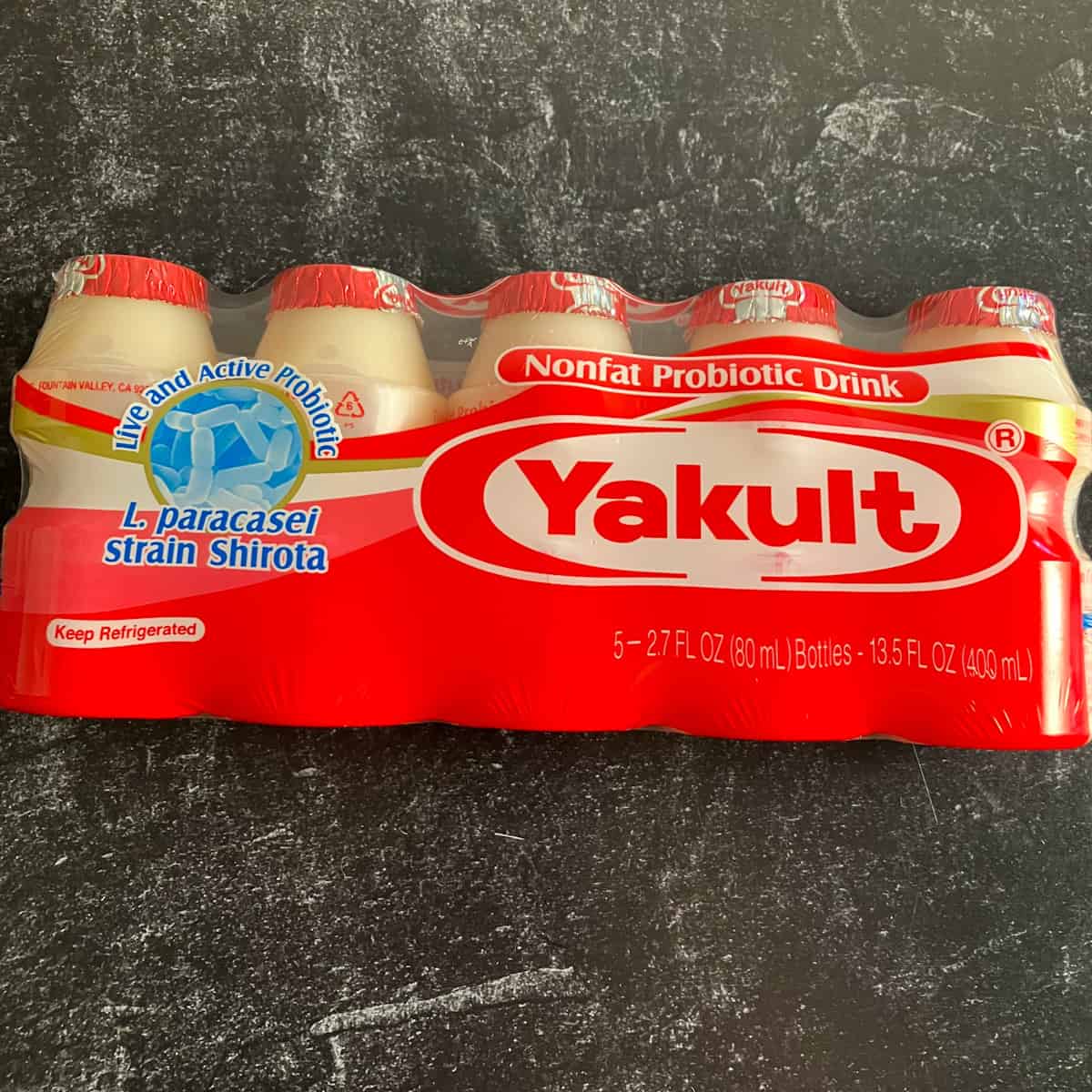Yakult: The Probiotic Powerhouse For Gut Health? Yakult is indeed a reputable name when it comes to providing a natural solution for maintaining digestive health, especially gut health, with its renowned probiotic drink.
Through extensive analysis, research, and compilation of valuable information, we have created this comprehensive guide on Yakult: The Probiotic Powerhouse For Gut Health. This guide will provide readers with a clear understanding of Yakult's significance and the benefits it offers in supporting gut health and overall well-being.
| Feature | Yakult | Other Probiotic Drinks |
|---|---|---|
Continue reading to learn more about the benefits of Yakult for better gut health.
FAQs
This FAQ section provides answers to frequently asked questions about Yakult, a probiotic supplement renowned for its gut health benefits. Yakult: The Probiotic Powerhouse For Gut Health
Question 1: What are the benefits of consuming Yakult?
Yakult contains live and active probiotic bacteria called Lactobacillus casei Shirota strain. These bacteria help to maintain a healthy balance of gut microbiota, supporting digestive health, immune function, and overall well-being.

Yakult Benefits (Probiotic Drink Price, Ingredients, more!) - Source summeryule.com
Question 2: How often should I drink Yakult?
A single daily bottle of Yakult is recommended to reap its health benefits consistently. Regular consumption helps to establish a robust and diverse gut microbiome.
Question 3: Is Yakult suitable for everyone?
Yakult is generally safe for most individuals. However, those with severe immune deficiencies or milk allergies should consult a healthcare professional before consuming it.
Question 4: Can I take Yakult if I am taking antibiotics?
Antibiotics can disrupt the balance of gut bacteria. Taking Yakult alongside antibiotics helps replenish beneficial bacteria and minimize the potential side effects of antibiotic treatment.
Question 5: How should I store Yakult?
Yakult should be refrigerated at all times to maintain the viability of its probiotic bacteria. It is best consumed within two weeks of purchase.
Question 6: Are there any side effects associated with consuming Yakult?
Yakult is generally well-tolerated. However, some individuals may experience mild digestive symptoms such as bloating or gas, especially during the initial days of consumption.
By incorporating Yakult into your daily routine, you can harness the power of probiotics to enhance your gut health and overall well-being.
Discover more about the science behind Yakult and its numerous benefits for a healthy gut and body.
Tips
Incorporating Yakult into your daily routine can provide significant benefits for your gut health. Here are a few tips to help you maximize the probiotic power of Yakult:
Tip 1: Consume Yakult regularly
The probiotic strains in Yakult need time to establish themselves in your gut and start promoting health benefits. Aim to consume one bottle of Yakult daily to maintain a healthy gut microbiome.
Tip 2: Drink Yakult on an empty stomach
Taking Yakult on an empty stomach ensures that the probiotic bacteria have a clear path to reach your intestines, where they can colonize and multiply.
Tip 3: Chill Yakult before consumption
The probiotic strains in Yakult are more stable and active when chilled. Keep your Yakult refrigerated and serve it cold to optimize its benefits.
Tip 4: Pair Yakult with prebiotic foods
Prebiotics are non-digestible dietary fibers that feed the beneficial bacteria in your gut. Consuming prebiotic foods like fruits, vegetables, and whole grains along with Yakult can enhance the growth and activity of probiotics.
Tip 5: Avoid consuming Yakult with antibiotics
Antibiotics can kill both harmful and beneficial bacteria in your gut. While taking antibiotics, it is recommended to temporarily stop consuming Yakult to avoid compromising the effectiveness of the medication.
Summary
Following these tips can help you harness the full potential of Yakult for optimal gut health. Remember to consume Yakult regularly, drink it chilled, and pair it with prebiotic foods to maximize the benefits of its probiotic strains.
Yakult: The Probiotic Powerhouse For Gut Health
Maintaining optimal gut health is crucial for overall well-being. Yakult, a renowned probiotic beverage, stands out as a potent ally in this endeavor. Its unique blend of probiotics, prebiotics, and other beneficial components empowers it with multifaceted benefits.
- Probiotic Potency: Yakult contains billions of live and active probiotics, primarily Lactobacillus casei strain Shirota.
- Gut Microbiome Modulation: These probiotics help establish a healthy balance of gut microbiota, promoting a thriving ecosystem.
- Digestive Health Enhancement: Yakult aids digestion, alleviates occasional digestive discomfort, and promotes regularity.
- Immune System Support: Probiotics in Yakult stimulate immune responses, strengthening the body's defenses against pathogens.
- Nutrient Absorption Improvement: A healthy gut microbiome facilitates better absorption of nutrients from food, contributing to overall health.
- Convenient Consumption: Yakult's convenient single-serving bottles make it easy to incorporate into daily routines.
These multifaceted aspects of Yakult underscore its significance as a probiotic powerhouse for gut health. Its positive impact on the microbiome, digestive function, immune system, and nutrient absorption highlights its role in maintaining a robust and healthy body. Embracing Yakult as part of a balanced diet and healthy lifestyle empowers individuals to take proactive steps towards safeguarding their gut health and overall well-being.

Yakult Pororo Tropical Fruits - Sing Long - Source www.singlong.com
Yakult: The Probiotic Powerhouse For Gut Health
Yakult, a fermented milk drink, has gained recognition for its probiotic properties, which play a crucial role in maintaining gut health. Probiotics are live microorganisms that, when consumed in adequate amounts, can confer health benefits to the host. In the case of Yakult, the probiotic strain is Lactobacillus casei strain Shirota (LcS). This strain has been extensively studied and has shown to have various beneficial effects on gut health, including improving digestion, boosting the immune system, and reducing the risk of certain diseases.

Which probiotic is best? Yakult Vs Actimel - You Well - Source you-well.co.uk
The connection between Yakult and gut health is well-established. Gut health is vital for overall well-being, as it affects digestion, nutrient absorption, and immunity. When the gut microbiome, the trillions of microorganisms residing in the gut, is balanced, it promotes good health. However, factors such as diet, stress, and certain medications can disrupt this balance, leading to gastrointestinal issues and other health concerns.
Yakult, with its probiotic content, helps restore and maintain a healthy gut microbiome. LcS has been shown to promote the growth of beneficial bacteria, such as Bifidobacteria and Lactobacilli, while inhibiting the growth of harmful bacteria. These beneficial bacteria produce short-chain fatty acids (SCFAs), which nourish the cells lining the gut and strengthen the immune system. LcS also helps improve lactose digestion, making Yakult a suitable option for individuals with lactose intolerance.
The practical significance of understanding the connection between Yakult and gut health is multifaceted. Maintaining a healthy gut microbiome is crucial for digestive health, preventing chronic diseases, and boosting overall well-being. By consuming Yakult regularly, individuals can support their gut health and potentially reduce the risk of various health issues.
| Benefit | Mechanism |
|---|---|
| Improved digestion | Promotes the growth of beneficial bacteria, which produce enzymes that aid digestion. |
| Boosted immunity | Strengthens the intestinal barrier and stimulates the production of immune cells. |
| Reduced risk of certain diseases | Inhibits the growth of harmful bacteria and promotes a healthy gut microbiome, which is associated with a lower risk of conditions such as inflammatory bowel disease and certain types of cancer. |